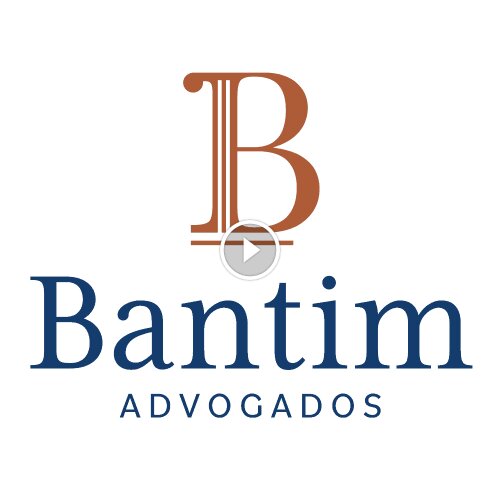Best Project Finance Lawyers in Sao Paulo
Share your needs with us, get contacted by law firms.
Free. Takes 2 min.
List of the best lawyers in Sao Paulo, Brazil
About Project Finance Law in Sao Paulo, Brazil
Project Finance in Sao Paulo, Brazil, refers to the legal and financial structuring of large-scale infrastructure and industrial projects, such as highways, energy plants, ports, and public transportation systems. In this model, the financing is primarily secured by the project's future cash flows rather than the assets or creditworthiness of the project sponsors. The city of Sao Paulo, being the commercial and financial hub of Brazil, is a centerpiece for major investment projects and thus a critical jurisdiction for Project Finance in Latin America. Local and international investors, banks, and sponsors often participate in complex deals that require navigating Brazil's regulatory landscape and contractual arrangements unique to the region.
Why You May Need a Lawyer
Project Finance transactions are intricate and involve legal, financial, and regulatory risks. Legal counsel is essential to anticipate challenges, structure the project legally and financially, and ensure compliance with Brazilian and local Sao Paulo laws. You may need a Project Finance lawyer if you are:
- Developing or investing in large infrastructure or public service projects
- Negotiating public-private partnership (PPP) agreements or concessions
- Seeking to secure financing from local or international banks and investors
- Managing complex multi-party contracts and risk allocation
- Addressing disputes or defaults related to project agreements
- Ensuring compliance with environmental, tax, and regulatory requirements in Brazil
- Navigating foreign investment rules and currency exchange regulations
By working with a specialized Project Finance lawyer, you increase the chances of project success, safeguard your interests, and reduce the risk of financial or regulatory setbacks.
Local Laws Overview
The legal framework for Project Finance in Sao Paulo is shaped by both national and state regulations. Key aspects include:
- Public-Private Partnerships (PPPs): Governed by Federal Law 11.079/2004 and complemented by Sao Paulo State and municipal regulations, PPPs are common in infrastructure development.
- Concession Agreements: Used for transferring the management of public services to private entities, often subject to bidding and strict contract terms.
- Security Interests and Guarantees: Brazilian law allows various forms of collateral, including fiduciary sales, mortgages, and project receivables, but requires careful structuring and compliance with local registration processes.
- Environmental Regulations: Projects must comply with federal, state, and municipal environmental licensing and operational standards, which can be stringent and require specialized legal assistance.
- Foreign Investment: While encouraged, foreign investment is subject to registration with the Central Bank and compliance with exchange controls.
- Taxation: Complex tax rules apply to both the project and its financing structure, often requiring strategic planning for tax efficiency and compliance.
- Dispute Resolution: Contracts typically provide for arbitration or court proceedings, and the choice of forum can impact enforcement and speed of resolution.
Frequently Asked Questions
What is Project Finance and how does it work in Sao Paulo?
Project Finance is a method of funding projects where repayment relies on the project's cash flow. In Sao Paulo, it is commonly used for infrastructure, energy, and public services, involving multiple parties and complex contracts.
What types of projects usually utilize Project Finance in Sao Paulo?
Highway concessions, energy (including renewable), sanitation, ports, airports, public transportation, and hospitals are frequent candidates for Project Finance structures in Sao Paulo.
What are Public-Private Partnerships (PPPs) and why are they important?
PPPs are arrangements where the public and private sectors collaborate to develop and operate infrastructure. They are crucial in Sao Paulo due to the scale and capital investment needed for public works.
Are there restrictions on foreign investment in Project Finance projects?
Foreign investment is generally allowed and welcomed, but must comply with registration requirements and exchange control regulations enforced by Brazilian authorities.
What are the main risks associated with Project Finance in Sao Paulo?
Legal, regulatory, environmental, financial, and political risks may arise. These involve contract enforcement, changes in law, license delays, exchange rate fluctuations, and government actions.
What collateral is usually provided in Project Finance deals?
Collateral may include project assets, receivables, shares in the project company, bank guarantees, and insurance, all subject to Brazilian legal requirements regarding registration and enforcement.
How are environmental regulations addressed in Project Finance?
Projects must obtain all necessary licenses and comply with strict federal, state, and local environmental rules. Delays or noncompliance can result in fines or suspension of operations.
What dispute resolution methods are most common?
Arbitration is widely used for complex deals due to its efficiency, confidentiality, and enforceability, though Brazilian courts may be involved for certain matters.
How are tax issues handled in Project Finance transactions?
Project structure impacts tax rates and liabilities. Proper legal advice is needed for tax planning, compliance, and taking advantage of possible incentives or exemptions.
How can a lawyer help during negotiations or a dispute?
A lawyer provides essential advice on risk allocation, negotiates contracts, ensures compliance with local laws, and represents parties in negotiations, mediations, arbitrations, or court actions.
Additional Resources
If you are seeking more information or professional support regarding Project Finance in Sao Paulo, the following resources can be helpful:
- Sao Paulo State Investment Promotion Agency (InvestSP): Provides information and support for investors in Sao Paulo.
- Brazilian Legal Bar Association (OAB Sao Paulo): Directory of licensed legal professionals and law firms in Sao Paulo.
- Brazilian National Bank for Economic and Social Development (BNDES): Offers financing options and information for large-scale projects.
- Brazilian Project Finance and Infrastructure Association (ABDFI): A network for professionals involved in Project Finance in Brazil.
- Federal Ministry of Infrastructure: Central information hub on federal and regional infrastructure projects and regulation.
Next Steps
If you believe you need legal assistance with a Project Finance matter in Sao Paulo, consider the following steps:
- Gather relevant documents, such as project plans, contracts, permits, and previous correspondence.
- Clarify your objectives and the specific issues you are facing or anticipate with your project.
- Reach out to a law firm or independent lawyer specializing in Project Finance. Look for credentials, relevant experience, and familiarity with Sao Paulo's regulatory environment.
- Be prepared to discuss your project, potential risks, financing structure, and any regulatory or contractual challenges.
- Assess the proposed legal strategy and ensure you understand your rights, obligations, and available legal remedies.
Navigating Project Finance in Sao Paulo requires specialized knowledge and careful planning. Engaging qualified legal help can make the difference between the success and failure of your project.
Lawzana helps you find the best lawyers and law firms in Sao Paulo through a curated and pre-screened list of qualified legal professionals. Our platform offers rankings and detailed profiles of attorneys and law firms, allowing you to compare based on practice areas, including Project Finance, experience, and client feedback.
Each profile includes a description of the firm's areas of practice, client reviews, team members and partners, year of establishment, spoken languages, office locations, contact information, social media presence, and any published articles or resources. Most firms on our platform speak English and are experienced in both local and international legal matters.
Get a quote from top-rated law firms in Sao Paulo, Brazil — quickly, securely, and without unnecessary hassle.
Disclaimer:
The information provided on this page is for general informational purposes only and does not constitute legal advice. While we strive to ensure the accuracy and relevance of the content, legal information may change over time, and interpretations of the law can vary. You should always consult with a qualified legal professional for advice specific to your situation.
We disclaim all liability for actions taken or not taken based on the content of this page. If you believe any information is incorrect or outdated, please contact us, and we will review and update it where appropriate.










